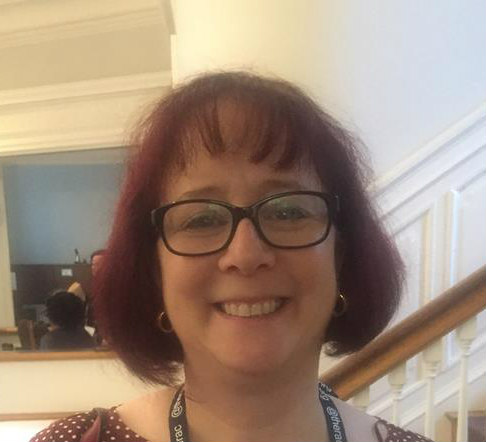
This week we turn to Ha’azinu, the second to last parashat in the book of Deuteronomy. For the entirety of the book of Deuteronomy, Moses has been reviewing the Israelites’ wandering—the exam review if you will. Now as his death approaches, he teaches them this poem so that they will remember what is important. Logically, it makes sense that it would be a poem or a song; it is much easier to remember things when learned that way. I can clearly remember the jingles of my youth, but I probably can’t tell you what I ate yesterday.
What strikes me as odd about this poem, however, is that it does not list the adventures of the Israelites nor any of the commandments. No. It is a foretelling of all the awful things G-d can do to the Israelites when (not if) they fail to follow G-d, and a poetic review of G-d’s beneficence toward them. It is G-d as warrior and G-d as savior. Writing in the Torah: A Woman’s Commentary, Andrea Weiss points out that the poem is thought to be significantly older than the rest of Deuteronomy (as the Song of the Sea is older than the book of Exodus). It is a poem probably written after some tragedy. It is a lament. Like other laments, she notes, it may have been women who learned it, sang it and passed it on.
What is a lament? The dictionary defines it as an outpouring of grief. We lament when someone we love dies. Traditionally, we lament the loss of the Temples (both of them) on Tisha B’Av, the 9th of the month of Av, which this year fell on August 11. Many of us that day also went out in public with other parts of the Jewish community to lament what is happening at our borders.
Unfortunately, there is quite a bit to lament these days and even more that we fear we may lament in the future. We women, traditionally the singers of laments, must hold fast to our values to make sure that we do not lament the loss of many of our basic rights. “Never again,” we cry as we protest the camps at the border. And we cry “never again” as well as we remember women who died in the past for lack of safe, legal abortion.
WRJ has stood for immigration rights since our first resolution ever in 1915. And we have stood for reproductive justice since the 1930’s when we resolved that birth control literature should not be considered obscene by the US Postal Service. Today we are seeing many attempts to roll back the progress we thought we had made. And we are fighting back. WRJ is leading the fight for reproductive justice for the entire Reform Movement. How can you be involved? First, look at the resources for the reproductive justice campaign available on the WRJ website.). Second, see if your sisterhood, women’s group or congregation will sign up for the reproductive justice cohort to connect with other groups doing this important and sacred work and third, support the reproductive justice campaign or WRJ’s other wonderful work. And don’t stop with you, ask your friends, post on social media. It is 2019 and we will not start lamenting friends dying from back-alley abortions. We will not go back.
Like Moses on Mt. Nebo, we can see the promised land. Whether we enter it or not, let’s make sure our daughters do.
Shabbat Shalom.
Abigail Fisher serves as WRJ’s Vice President of Philanthropy. She has previously served as the chair of the WRJ program for the 2017 Consultation on Conscience, WRJ Vice President of Advocacy, Marketing & Communications, and as the program chair for WRJ’s Centennial Assembly in 2013. Abby is also a past president of the WRJ’s Northeast District. Abby graduated from Swarthmore College with a BA in Biology and a minor in religion. She received her PhD in cell biology from the Massachusetts Institute of Technology. After working in research and development for several years, she left the paid workforce to focus on her family and her other interests. She received a Masters in Jewish Studies from Hebrew College in 2010. In addition to her work with WRJ, Abby is the founding chair of URJ Six Points Sci-tech Academy East and serves on the Commission on Social Action of Reform Judaism. She also serves as first vice president of her congregation, Beth El Temple Center in Belmont, MA. In her paid life, Abby teaches Hebrew and tutors B’nai mitzvah students. She is also the advisor for Jewish Studies students at her alma mater, Hebrew College. Abby enjoys playing the bassoon, bicycling, and playing golf. She resides in Belmont, MA with her husband, her dogs, and, when they are home, her two children.
Related Posts

Parashat Yom Rishon shel Rosh HaShanah

Cultivating a Culture of Accountability and Belonging


